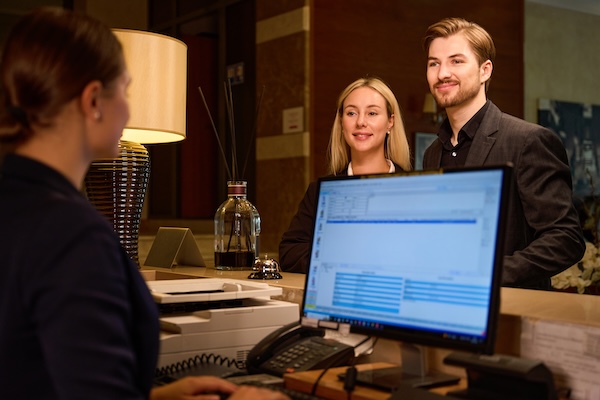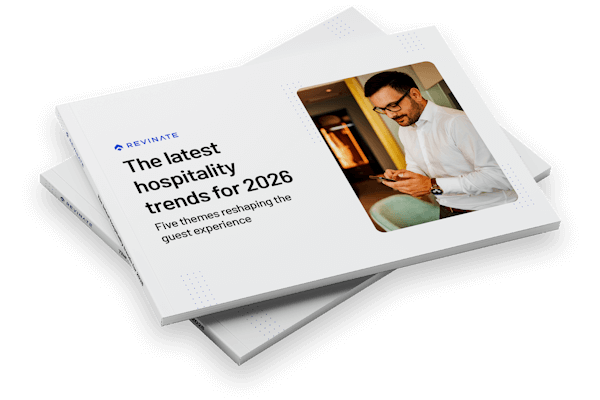Why your upsell strategy is failing: When digital & voice live in different worlds
Why your upsell strategy is failing: When digital & voice live in different worlds
This article was written by Shira Wilkofsky, Marketing Performance Manager at Main Street Hospitality Group.
Upselling should be a seamless part of the guest journey, elevating the experience for guests, while strengthening the bottom line. Yet many properties invest heavily in offers, scripts, and campaigns — only to see limited return. The root cause is rarely the quality of the upgrade itself, but the disconnect between digital browsing behavior and voice-channel conversations.
When your marketing emails, website upgrade offers, and reservation center interactions fail to align, what the guest sees becomes what they doubt. What appears consistent on one channel looks different in another. That variability undermines trust, lowers conversion, and limits loyalty.
The hidden cost of fragmentation
Hotel systems capture vast amounts of data, but too often they operate in isolation. Marketing automation, booking engines, and reservation software each hold valuable insights, yet they rarely share information with each other. When that happens, data about guest behavior becomes trapped, and the guest experience suffers.
A guest may view a suite upgrade online, interact with a pre-arrival email, and later call to confirm a booking. If the reservations agent cannot see those earlier interactions, the conversation starts from zero. The agent offers a different room or a higher rate, unaware that the guest has already shown interest. That disconnect erodes trust and reduces conversion.
Fixing this is not about asking the reservations team to sell harder. It is about integrating systems so data flows freely between digital and voice channels. When browsing and booking data reach the people who speak to guests, upselling becomes more relevant and more successful.
From data to dialogue
Guest data only creates value when it can be used in real time. Browsing behavior, booking preferences, and communication history all help shape a meaningful conversation, but only if the information is accessible.
A Customer Data Platform (CDP) makes this possible. It connects the PMS, CRM, marketing automation, and call center systems into one complete guest profile. With this foundation, the reservations team can see what the guest has already explored and tailor their recommendations accordingly.
This turns upselling into a dialogue that feels informed and personal. Instead of offering random add-ons, the hotel can build on what the guest already expressed interest in. The experience feels continuous rather than disconnected, increasing both conversion and satisfaction.
Balancing revenue goals with guest experience
Upselling is most effective when it adds value to the stay. Offers that are timely, relevant, and considerate of guest intent perform better than those focused purely on revenue. When the offer feels right, guests respond positively because they recognize the benefit to them.
Success depends on alignment between commercial and guest-experience objectives. Revenue teams should work with marketing and operations to identify which upgrades genuinely enhance the stay for each segment. Performance should then be measured not only by additional spend but by post-stay feedback, repeat booking rates, and guest sentiment.
This balance ensures that upselling supports both short-term revenue and long-term loyalty. When done well, it strengthens the relationship rather than testing it.
Creating an upsell culture across the property
Technology connects systems, but people shape the experience. Real upsell performance depends on how well teams work together around a shared understanding of the guest. In many hotels, marketing oversees digital offers and communications, while the reservations team manages personal interactions. Each function performs well on its own, but when they operate separately, the guest journey loses continuity.
A strong upsell culture begins with shared ownership. Marketing, revenue, and reservations should align on the same offers, pricing, and guest insights. This ensures that what guests see online is the same message they hear over the phone and experience when they arrive. The result is consistency that builds trust and improves conversion.
Regular collaboration reinforces this connection. When new packages or promotions launch, reservations teams should be briefed on the context, visuals, and messaging behind them. Likewise, the insights gathered during phone conversations — questions, objections, or common requests — should be shared with marketing to refine future campaigns.
Training also plays a central role. When agents understand the goal behind each upsell and how it adds value for the guest, they can speak with confidence and authenticity. The interaction feels consultative rather than scripted, and the offer sounds like part of the service, not a sales pitch.
When every department shares the same intent and information, upselling becomes second nature. Guests experience continuity from screen to conversation to stay, and that cohesion turns good processes into exceptional experiences.
The path forward
The most successful upsell strategies are no longer defined by individual tools or campaigns but by how well people, systems, and data work together. Hotels that close the gap between digital and voice channels create experiences that feel effortless, consistent, and personal.
The next step is integration with intent. Marketing, revenue, and reservations teams must use shared insights to design offers that are both profitable and meaningful. Technology provides the foundation, but alignment and communication turn that foundation into action.
When every touchpoint reflects a single understanding of the guest, upselling stops feeling like a tactic and becomes a natural expression of hospitality. It builds trust, drives revenue, and deepens loyalty — the real outcomes of a connected guest experience.
Take action
- Audit your current upsell journey to identify where digital and voice channels fall out of sync.
- Align marketing and reservations around shared messaging, offers, and goals.
- Measure success not only by revenue uplift, but by guest satisfaction and repeat bookings.
Ready to elevate your upsell performance and deliver experiences guests remember? Join The Direct Booking Mastery Certification and learn how to turn every conversation into an opportunity for connection and conversion.
This site is protected by reCAPTCHA and the Google Privacy Policy and Terms of Service apply. View our Terms & Conditions here. *Required fields.






